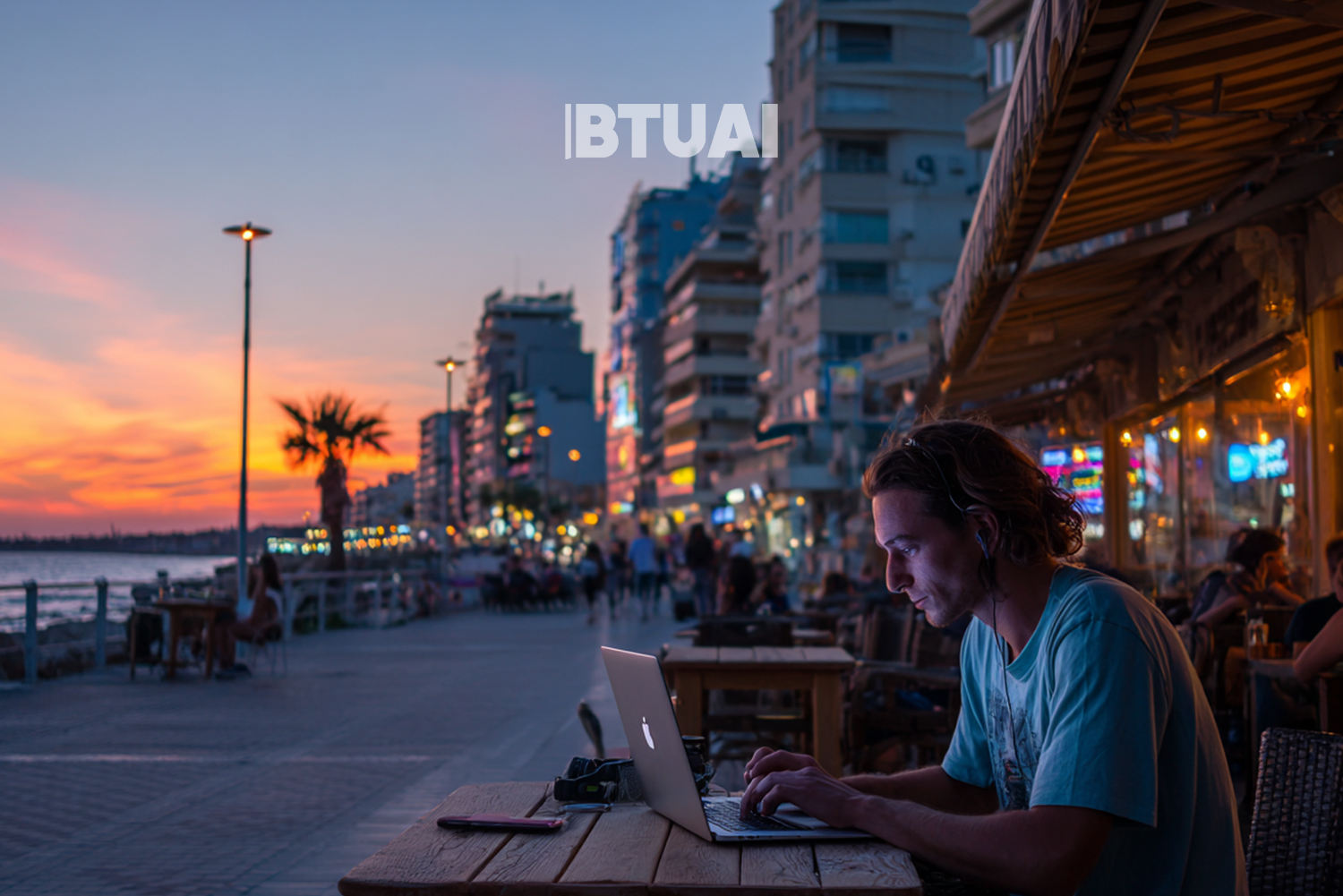Batumi’s Balancing Act: Digital Nomads, Seasonal Economy, and the Search for Sustainability
For decades, Batumi was known first and foremost as a seaside resort — a city that bustled in summer

For decades, Batumi was known first and foremost as a seaside resort — a city that bustled in summer with Georgian and regional tourists, then quieted as autumn arrived. But in recent years, a new phenomenon has transformed this rhythm: the arrival of digital nomads, who now form a visible, seasonal community along the Black Sea coast. They rent sea-view apartments in high-rise towers, work from cafés and coworking spaces, and bring foreign income into local circulation.
Batumi’s appeal to digital nomads is clear. Compared to Tbilisi’s fast-paced urban energy, Batumi offers a “chill” vibe: the beach, fresh air, and a slower tempo of life. The New Boulevard district provides modern high-rise apartments popular among foreigners, while Old Batumi retains its Georgian character and draws those who seek authenticity. Many nomads rotate: summers in Batumi, spring and autumn in Tbilisi, and winters in Gudauri’s ski resorts. This geographic flexibility within Georgia is a unique competitive advantage — few countries of comparable size offer such diversity of lifestyles within a few hours’ travel.
But the influx has reshaped the economy, especially the housing market. During summer peak, demand from nomads collides with tourist season, pushing rents sharply upward. Apartments that once accommodated Georgian families on vacation are now leased long-term to foreigners. Landlords welcome the stability and higher earnings, but locals complain of being priced out. Off-season, many of these units sit empty, leaving Batumi caught in a cycle of boom in July, bust in January.
The positive side is substantial. Digital nomads bring daily spending power: cafés, bars, supermarkets, gyms, and transport services all benefit. New coworking spaces are opening, giving Georgian youth opportunities to work alongside foreigners and tap into global networks. Seasonal spending stretches the tourist season; many nomads stay into September or October, generating income after domestic tourists have left. Some even launch small businesses or creative projects, adding new dynamism to the city.
Still, the challenges are significant. Housing affordability for locals is the most obvious. Cultural distance is another: while many Georgians welcome foreigners warmly, nomads often remain in expat bubbles, attending English-language meetups and socializing mainly among themselves. Integration is partial. At times, frictions emerge over respect for local norms — an echo of tensions seen in other hubs.
International comparisons illuminate Batumi’s crossroads. Bali is a stark cautionary tale: once paradise for nomads, by the early 2020s it suffered from severe overcrowding, soaring rents, and local resentment. By 2023 the government launched crackdowns, deporting foreigners for rule violations and issuing cultural behavior guidelines. Bali shows how an unregulated boom can turn a success story into a burden. Batumi is far from that scale, but the seasonal surge and rising prices hint at similar risks if left unmanaged.
Lisbon’s experience also matters. There, tax breaks and open-door policies attracted a flood of remote workers, but fueled a housing crisis that left locals struggling. The city became simultaneously a global hub and a symbol of inequality. Batumi could face a parallel path if economic benefits concentrate among landlords and café owners while locals absorb the costs.
Tallinn, in contrast, demonstrates another model. Estonia’s cautious approach — limited numbers, income requirements, clear tax rules — kept growth modest but more balanced. Batumi, which thrives on seasonal dynamism, might not replicate Tallinn’s restrictive model, but it could learn the importance of establishing clear rules and monitoring nomad inflows to avoid unsustainable spikes.
Ultimately, Batumi’s challenge is balance. The city needs the income nomads bring, as they extend the tourist season and diversify the economy. But it also must protect residents from uncontrolled rent hikes and preserve cultural identity. Policy could include incentivizing housing supply, developing affordable options for locals, and creating infrastructure that works year-round. Investment in transport, internet capacity, and public amenities would help distribute benefits more evenly. Community initiatives — like cultural festivals, language exchanges, or volunteer programs — could foster integration and avoid the “parallel societies” seen elsewhere.
The central question is this: Can Batumi become the “Black Sea Bali,” but managed more wisely and sustainably? If Georgia designs policies that welcome foreigners while safeguarding locals, Batumi could emerge as a unique model of coexistence — a city where tourism, digital nomadism, and local life enrich one another rather than collide. If not, Batumi risks repeating Bali’s mistakes, transforming into a city of empty winter apartments and resentful residents.
For now, the choice is still open. The opportunities are vast, but so are the risks. Batumi stands at a pivotal moment: either a case study in sustainable nomad integration, or another warning of paradise lost to its own success.




